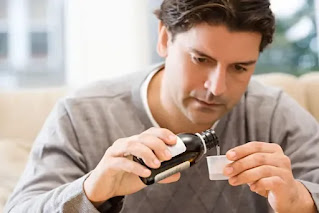Cough Syrup: An Overview
Cough Syrup Types
- Expectorants
- Suppressants
Expectorants: Thinning Mucus for Effective Relief
Expectorants work by thinning the mucus in the respiratory tract, making it easier to cough up. These types of cough syrup are commonly used to treat chest congestion and coughs that produce phlegm.
Suppressants: Quieting the Cough Reflex
Suppressants reduce the brain’s cough reflex, making it less likely to cough. These types of cough syrup are commonly used to treat dry, hacking coughs that do not produce phlegm.
- Addiction: Codeine-based cough syrups
- Overdose: Serious health complications
- Interaction with other medications: Caution required
- Allergic reactions: Potential for mild to severe symptoms
Side Effects of Cough Syrup
- Drowsiness: Exercise caution during activities
- Nausea and vomiting: Potential discomfort
- Constipation: Possibility, especially with prolonged use
- Dizziness: Particularly observed in older adults
Conclusion:
Responsible Use for Effective Relief Cough syrup can be an effective medication for treating coughs and colds. However, it is important to understand the risks and side effects associated with its use. It is also important to use cough syrup as directed and to check with a healthcare professional before taking it with other medications. By staying informed and using cough syrup responsibly, individuals can maximize its benefits while minimizing any potential complications.
FAQs
Is cough syrup safe for children?
Cough syrup is generally considered safe for children aged 4 and above. However, it is crucial to administer the appropriate type of cough syrup and follow the recommended dosage based on the child's age and weight.
Can cough syrup be used during pregnancy?
Consulting with a healthcare professional before using cough syrup during pregnancy is important. Certain types of cough syrup may not be safe for use during this period, and it's best to seek expert advice to ensure the well-being of both the mother and the unborn child.
Can cough syrup cause liver damage?
Excessive or prolonged use of cough syrup can potentially lead to liver damage. Some cough syrups contain high levels of acetaminophen, which can be toxic to the liver in large doses. Overdosing on acetaminophen can result in liver damage, liver failure, or even fatality. It's crucial to adhere to the recommended dosage and avoid consuming more than the prescribed amount of cough syrup.
Is cough syrup bad for you?
While cough syrup can effectively alleviate cough and cold symptoms, it can be harmful when used inappropriately or excessively. Certain cough syrups may contain ingredients that are addictive or can cause adverse effects when consumed in high quantities. It is essential to follow the instructions provided by healthcare professionals and use cough syrup responsibly.
Why does cough syrup make you sleepy?
Some cough syrups contain antihistamines or other components that can induce drowsiness as a side effect. These ingredients are designed to reduce coughing and relieve congestion, but they can also affect the brain and central nervous system, resulting in feelings of sleepiness or sedation. Furthermore, persistent coughing can be physically exhausting, and using a cough syrup that helps suppress coughing can induce relaxation and sleepiness.
Why does cough syrup taste so bad?
The unpleasant taste of cough syrup can be attributed to the active ingredients it contains, such as antihistamines, expectorants, and cough suppressants. These ingredients are not typically chosen for their taste, often resulting in a bitter or unpleasant flavor. Additionally, cough syrups may contain alcohol or other additives that can further contribute to the taste. While some cough syrups may have flavors added to improve palatability, the taste can still be unappealing to some individuals.
Can I drink water after cough syrup?
Yes, you can drink water after taking cough syrup. In fact, drinking water can help soothe your throat and maintain hydration, which is beneficial when experiencing a cough or cold. It is generally recommended to wait a few minutes after taking cough syrup before consuming water or food. This allows the medication to be properly absorbed and potentially enhances its effectiveness in alleviating symptoms. However, it's always advisable to follow the instructions on the cough syrup label or consult with your healthcare professional for specific guidance.




0 Comments